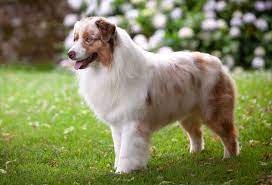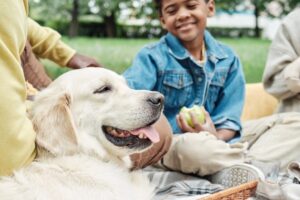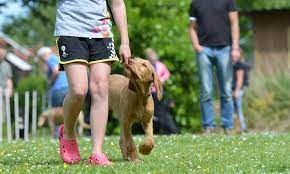Dogs, dubbed “man’s best friend,” have been faithful companions to humans for thousands of years. Dogs’ friendliness is one of the primary characteristics that contribute to their popularity as pets.
Introduction
While individual dispositions vary widely, several dog breeds are known for their extroverted and sociable demeanor. In this detailed post, we will look at the most sociable dog breeds, covering their traits, temperaments, and why they make such wonderful companions for individuals looking for canine companions to share their lives with.
What does Sociability Mean for Dogs?
The ability of dogs to socialize and get along with other dogs and humans is referred to as sociability. It is a desirable characteristic for pet owners looking for an outgoing and sociable companion. While each dog is unique and can exhibit varied degrees of sociability, several breeds have a reputation for being especially sociable and enjoying the company of others.
It is critical to consider your lifestyle, living circumstances, and the amount of time you can devote to your furry friend when selecting a social dog breed. Sociable dogs thrive on social connections and may not be suitable for people who travel frequently or desire a more autonomous companion.
Most Sociable Dog Breeds
Now, let’s go into the details of some of the best companion dog breeds in the world and find out who the top contenders for the title of most sociable canine companions are.
- Labrador Retriever

The Labrador Retriever is widely regarded as one of the most sociable and friendly dog breeds. Labradors are a popular choice for families, singles, and the elderly because of their sweet disposition and endless excitement. Their friendly and outgoing demeanor makes them an excellent choice for families with children or other pets.
Labradors are well-known for their playful nature, and they get along well with both humans and other dogs. Their enthusiasm and eagerness to please make them ideal candidates for training and socialization. Labradors are always up for companionship, whether it’s a game of fetch, a lengthy trip, or simply snuggling on the couch.
- Golden Retriever

Golden retrievers and Labrador retrievers share many friendly characteristics. They are friendly, affectionate, and ready to meet new companions, two or four-legged. Their gentle and warm personality makes them ideal for families, and they excel as therapy dogs due to their natural ability to connect with people.
Golden retrievers are well-known for their intelligence and trainability, which contributes to their sociability. They are great at adjusting to new social situations and are frequently the life of the party at dog parks and social gatherings.
- Beagle

Beagles are tiny to medium-sized hounds with an outgoing and happy temperament. These canines are typically classified as “happy-go-lucky” since they like mingling and exploring. Beagles are not only good with humans, but they also love the companionship of other dogs.
Because of their active and inquisitive temperament, they flourish in surroundings where they may interact with humans and other animals. Beagles are also recognized for their characteristic howl, which some find adorable and others find hilarious, making them an entertaining addition to any social gathering.
- Bulldog

Bulldogs aren’t the first breed that springs to mind when you think of companion dog breeds, but their attractive and laid-back nature make them unexpectedly pleasant companions. They are well-known for their sweet demeanor and fondness for human company.
While Bulldogs lack the enthusiasm of certain other breeds, they make up for it with their loyalty and affection. They are content to spend time with their families, whether it is watching TV on the couch or relaxing in the backyard. Bulldogs are also well-known for being kind to youngsters, making them an excellent choice for families looking for a sociable and calm pet.
- Poodle

Poodles are frequently linked with elegance and intellect, but they are also very friendly canines. Their versatility and pleasant temperament make them ideal partners for a variety of lifestyles and living situations.
Poodles are available in three sizes: standard, miniature, and toy. They are recognized for their gregarious and people-oriented demeanor, regardless of size. Poodles thrive in social situations and enjoy being the center of attention. They are also very trainable, making them ideal for obedience training and socializing lessons.
- Boxer

Boxers are a high-energy breed that is noted for being playful and friendly. They are sometimes referred to as “clowns” because of their silly acts and desire to make people laugh. Boxers are friendly with both family members and strangers, making them ideal companions for folks who want to socialize.
Because these dogs are extremely loyal and protective of their owners, they can be apprehensive of strangers at first. Boxers, on the other hand, can be well-adjusted and friendly dogs with adequate socialization from a young age.
- Cocker Spaniel

Cocker Spaniels are well-known for their expressive eyes and friendly disposition. They are a small to medium-sized breed that enjoys being around people. Cockers are calm, friendly, and sociable dogs who enjoy company.
These canine companions are adaptable and may live in a variety of settings, from metropolitan apartments to suburban homes. Cocker Spaniels get along well with children and other pets, making them a wonderful choice for families searching for a friendly and caring companion.
- Bichon Frise

Bichon Frises have huge personalities despite their small size. They are well-known for their cheery and pleasant demeanor, making them ideal for both families and singles. Bichons adore being the center of attention and are social butterflies.
These fluffy canine companions are easy to train and adjust well to many social situations. They are popular at social events due to their playful demeanor and love of cuddling, and they frequently build close ties with their owners. Bichon Frises thrive on human interaction and are happiest when they are with their family.
- Shih Tzu

Shih Tzus are little dogs with enormous hearts. They are well-known for being affectionate and kind, making them excellent companions for people of all ages. Shih Tzus are commonly referred to as “people dogs” since they enjoy being around people and thrive on attention.
Shih Tzus have a confident and friendly disposition despite their little stature. They get along with children, adults, and other pets, making them an excellent choice for both families and singles. Shih Tzus are also noted for their rich, flowing coat, which adds to their allure.
- Australian Shepherd

Despite its name, the Australian Shepherd is not from Australia. These clever and active dogs are noted for being friendly and gregarious. They thrive on human interaction and have close relationships with their families.
Because Australian Shepherds are lively and agile, they make excellent companions for outdoor enthusiasts and active people. They excel at dog sports such as agility and herding, which give them a great outlet for their energy and sociability. Australian Shepherds become well-behaved and sociable dogs who can adapt to a variety of living circumstances with adequate training and socialization.
Factors Influencing Sociability

While breed influences a dog’s friendliness, it’s important to note that individual temperament and upbringing also play important roles. Some of the things that can influence a dog’s friendliness are as follows:
- Interaction
All dogs, regardless of breed, require early socialization. During the puppy stage, proper exposure to different people, animals, and environments helps dogs develop confidence and good social skills. Well-socialized dogs are more likely to be gregarious and at ease in a variety of situations.
- Education
Training is an important part of behavior of companion dog breeds. Proper training can assist to reward beneficial social habits while also correcting any negative ones. Dogs who are consistently and positively trained are more likely to be well-mannered and social.
- Genetics
While genetics influence a dog’s temperament, it’s important to recognize that individual variance exists within every breed. Regardless of breed reputation, some dogs are more naturally gregarious or reserved.
- Environment
The environment in which a dog grows up can also affect how friendly it is. Dogs raised in loving and social environments are more likely to demonstrate friendly characteristics. Dogs raised in solitude or neglect, on the other hand, may suffer from socialization.
- Life Stage
The sociability of a dog can also change with age. Puppies are more outgoing and curious than older dogs, who may grow more reserved. However, good socialization and training can help a dog’s sociability last its entire life.
Note: There might be affiliate links mentioned here. We may receive a commission if you purchase a product through an affiliate link. There is no additional charge for you. Please do your own research before making any online purchases.
How to Choose a Friendly Dog Breed

Choosing a dog from the most sociable dog breeds is a big decision that can affect your life and the well-being of your furry friend. While all dogs have the capacity for sociability, some breeds are more outgoing and sociable by nature. Here are some important elements to think about while choosing companion dog breeds that will fit your lifestyle and preferences
- Lifestyle Suitability

Consider your everyday routine and lifestyle. Are you an energetic person who appreciates outdoor activities such as hiking or jogging? Or do you prefer a more relaxed, indoor-oriented way of life? Some gregarious breeds, such as the Labrador Retriever or Australian Shepherd, thrive on outdoor activities, but others, like the Bulldog or Shih Tzu, may prefer a comfortable evening in.
- Level of Energy

The energy level of a dog breed must be compatible with your own. For example, Australian Shepherds and Boxers are high-energy companion dog breeds that demand regular exercise and mental stimulation. If you live a more sedentary lifestyle, a lower-energy breed, such as a Bulldog or Bichon Frise, may be a better match.
- Living and Working Space

Consider your current living conditions. Do you live in a huge suburban home with a large backyard or in a small city apartment? Some gregarious species, such as the Golden Retriever or Labrador Retriever, require plenty of freedom to roam, while smaller breeds, such as the Shih Tzu or Beagle, do well in apartments.
- Children and Family

If you have a family with children, it is critical that you select a breed known for its friendliness and patience with youngsters. Breeds such as the Golden Retriever, Cocker Spaniel, and Beagle are frequently excellent selections for families since they are gentle and social with youngsters.
- Extracurricular Activities

Take into account your level of social engagement and the activities you enjoy. If you enjoy hosting parties or going to dog parks, a friendly breed such as a Labrador Retriever or Poodle can be a great complement to your social life. A smaller, less active breed, on the other hand, may be more acceptable if you prefer a quieter, more introverted existence.
- Grooming and Allergies

Some companion dog breeds, like the Bichon Frise or Shih Tzu, have hypoallergenic coats that shed less and may be more suited to allergy sufferers. When selecting a social breed, it is critical to consider grooming requirements as well as any allergies.
- Commitment to Training and Socialization

Whatever breed you choose, adequate training and socialization are essential to ensuring that your dog grows into a well-mannered and friendly companion. Prepare to devote time and effort to teaching your canine companion fundamental social skills and obedience.
- Breeder or Rescue

Consider whether you want to adopt a dog from a shelter or buy a puppy from a breeder. Many social dog breeds can be found in rescue shelters, where dogs in need can find loving homes.
FAQs
What does sociability in dogs imply?
The ability of dogs to socialize and get along with other dogs and humans is referred to as sociability. It embodies their warmth and outgoing personalities.
Why is sociability such an important characteristic in a dog?
Sociability is crucial because it ensures that your dog will be pleasant and comfortable in a variety of social situations, allowing them to be enjoyable companions for both you and others.
Are all dogs social in some way?
While all dogs have the ability to be sociable, individual personalities can differ. Some breeds are more gregarious by nature than others.
How can I tell if a social dog breed is a good fit for me?
Consider your lifestyle, energy level, living arrangements, family makeup, social activities, and grooming preferences when selecting a sociable breed that meets your requirements.
Can social breeds live in apartments?
Yes, some friendly breeds, such as the Shih Tzu or the Beagle, can adjust well to apartment living if given enough exercise and mental stimulation.
Are there any social dog breeds that get along well with children?
Yes, social breeds like the Golden Retriever, Cocker Spaniel, and Beagle are well-known for their friendliness and patience with children.
Do sociable dogs need a lot of exercise?
It is dependent on the breed. High-energy breeds, such as the Australian Shepherd or Boxer, require regular exercise, and lower-energy types, such as the Bulldog or Bichon Frise, require less.
How important is socializing to a dog’s sociability?
Socialization is essential for all dogs since it helps them gain confidence and social skills. Dogs who have been well socialized are more likely to be gregarious and comfortable in a variety of situations.
With adequate training and socialization, can a less sociable dog breed become sociable?
Most dogs can enhance their friendliness and demeanor in social situations with adequate training and socialization.
Where can I locate adoptable social dog breeds?
There are several social dog breeds in rescue shelters. You can adopt a social dog in need of a loving home from a rescue organization, or if you prefer a specific breed, look into trustworthy breeders.
Conclusion
Sociability is an important characteristic in dogs because it improves their ability to build strong ties with humans and other animals. While every dog is different, several breeds have a reputation for being extremely gregarious and extroverted.
There is a friendly dog breed to meet your lifestyle and interests, whether you want a devoted family pet, a partner for outdoor excursions, or a social butterfly to enliven your social occasions. It’s critical to remember that adequate socialization and training are essential for ensuring that your sociable dog behaves well and feels at ease in a variety of social situations.
Consider your living circumstances, the amount of time you can devote to your furry friend, and your level of activity when selecting a friendly dog breed. You can enjoy the companionship and steadfast affection of a friendly dog that will genuinely become a treasured member of your family with the correct breed and the right upbringing.












